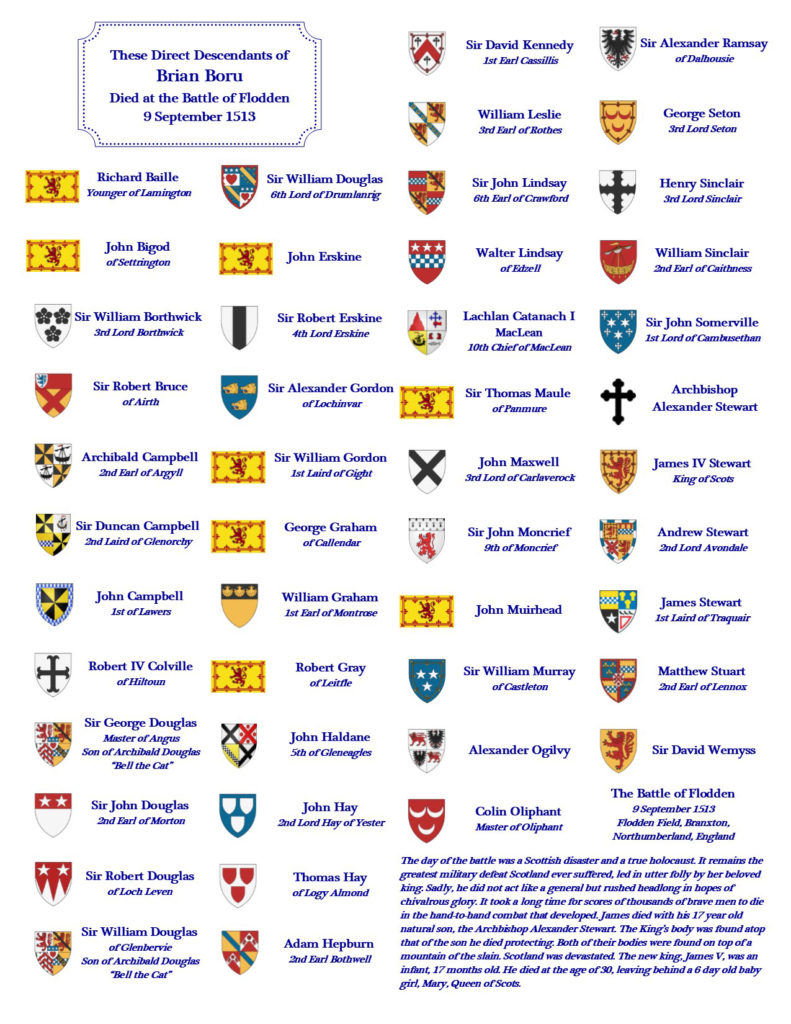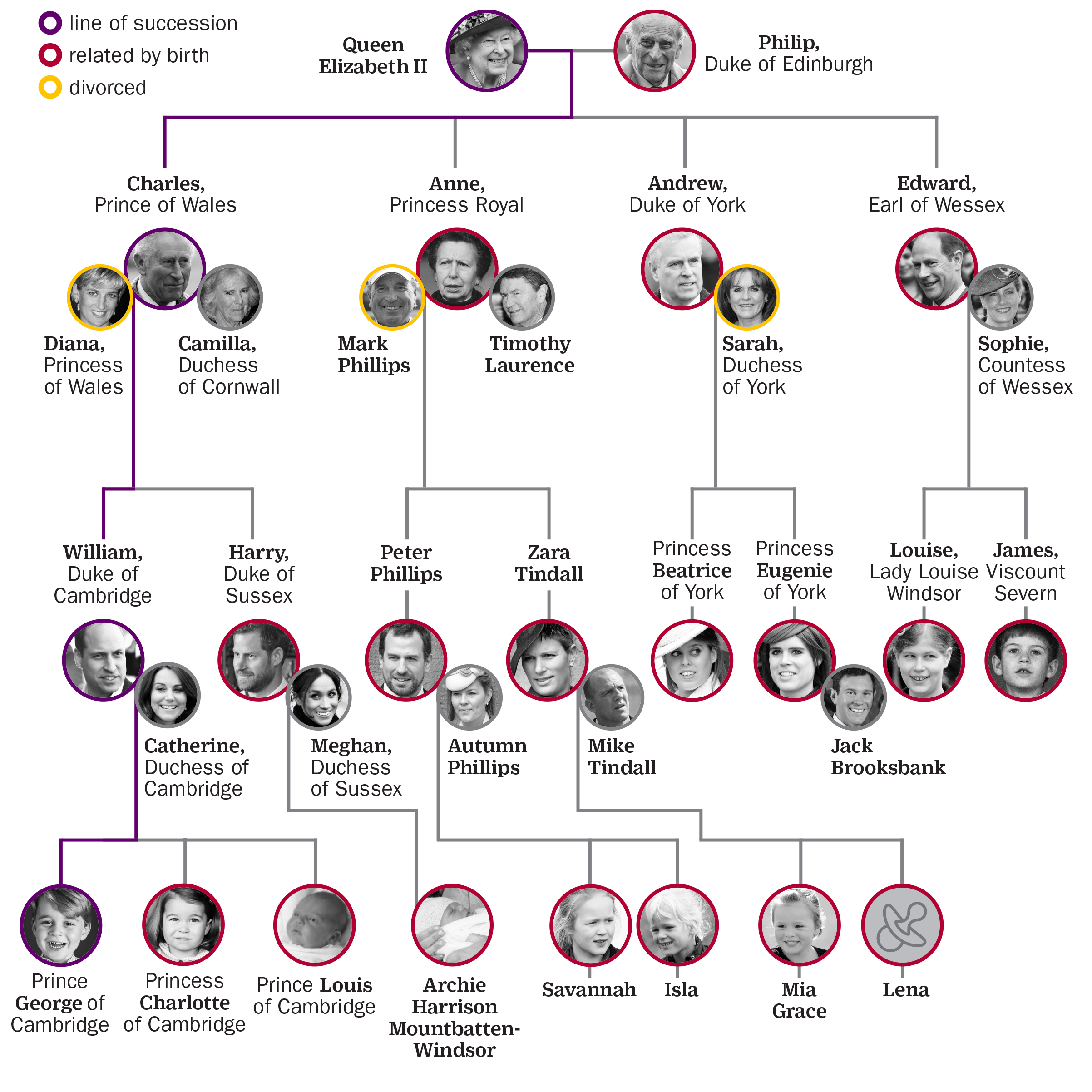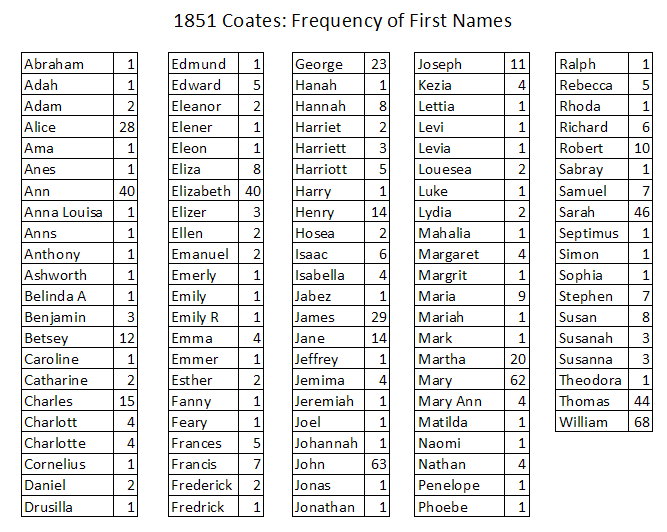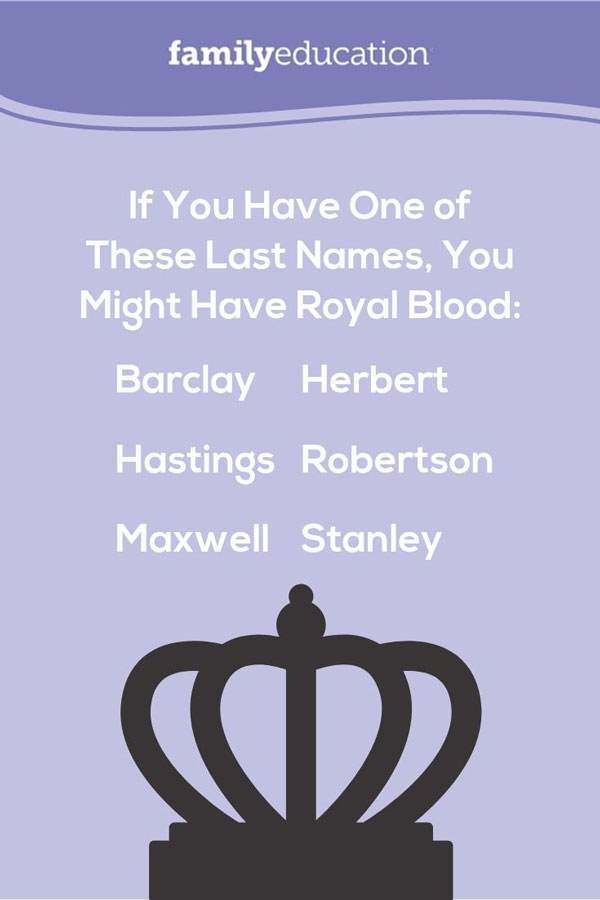
SMALL ANCESTRY CHARTS OF NOBILITY AND ROYALTY
For example, the Windsors, the British royal family and reigning monarchs in the UK, are well-known globally. Similarly, there are several other noble families in different countries. This post lists the surnames of some royal families known for their wealth, power, and influence. In This Article Popular Royal Last Names Or Surnames List

British Nobility Titles Explained What To Know About The U.K. Peerage System HuffPost UK
1. Adams (Hebrew origin) means "son of Adam". It is one of the most common surnames used right back through the centuries. 2. Allen (Scottish origin) means "son of Andrew". 3. Armstrong (Scottish origin) means "son of a strong man". Famous last name bearer: astronaut Neil Armstrong. 4. Atkinson (Scottish origin) means "son of Atkin". 5.

Who's Queen? Royal family trees, Victorian timeline, British history
Surname Index. For a whole range of other indexes to various groups of people on this web-site, please see the Custom Index (es) page. The naming conventions for European royalty and nobility is bewilderingly vast and intricate, with a person having many different possibilites for a surname, or none at all, making it difficult to locate people.

Yankee Royalist Royal Surnames and House Names Part II The House of Windsor
Help Wikimedia Commons has media related to Nobility of the United Kingdom. Subcategories This category has the following 20 subcategories, out of 20 total. British royalty and nobility with disabilities (63 P) Noble families of the United Kingdom (309 C, 37 P) A Nobility from Angus, Scotland (19 P) Nobility from Argyll and Bute (19 P) B
Regency History A Regency History guide to dukes, marquesses and other titles
Since the peerages are alphabetised by title rather than surname it is difficult to find surnames and associated families. Two good indexes exist, the compilers of Burke's have produced Burke's Family Index and F. Leeson (A Directory of British Peerages ) covers all peerage works.

Uk History, European History, British History, Family History, British Royal Family Tree, Royal
Noble Families Extinct. Holland, Duke of Exeter. — John Holland, Earl of Huntingdon, (third son of Thomas de Holland, Earl of Kent, by the heiress of Edmund de Woodstock, Earl of Kent,) was created Duke of Exeter, in 1388. He had two seats in this county, Exeter castle, and Dartington. The title was forfeited by his attainder, in 1399; but.

British Royal Family Hierarchy
British nobility, in the United Kingdom, members of the upper social class, who usually possess a hereditary title. The titled nobility are part of the peerage, which shares the responsibility of government. The peerage comprises five ranks, which are, in descending order, duke, marquess, earl, viscount, and baron.

Coat of Arms, Royal houses of Europe heraldry Family tree history, Coat of arms, Royal family
Wikimedia Commons has media related to Noble families of the United Kingdom. Contents Top 0-9 A B C D E F G H I J K L M N O P Q R S T U V W X Y Z Subcategories This category has the following 200 subcategories, out of 316 total. (previous page) ( next page) Burial sites of noble families of the United Kingdom (5 C)

1851 Names Coates, Cambridgeshire A OnePlace Study
Person holding highest hereditary title of nobility outside the royal family: Earl : The oldest English title and rank and now considered above the ranks of baron and viscount. Esquire: 17 th-18 th centuries a man with a coat of arms who was a superior gentleman. During 19 th century was used to address any gentleman, and later any man.
Regency History A Regency History guide to dukes, marquesses and other titles
(August 2008) Seats of current members of the British Royal Family Family seats of British peers Dukes (other than Royal Dukes) Marquesses Earls Viscounts Barons Family seats of British baronets and gentry See also List of family seats of Scottish nobility List of family seats of Irish nobility List of family seats of Welsh nobility References

Surnames With Possible Royal Ties FamilyEducation
An aristocratic name in England may originate in France from the Norman Conquest, while an aristocratic name in Spain may have a distinctly Austrian sound due to political marriages. History, politics, and adventure are woven into every aristocratic last name. We've curated lists of blue-blooded last names with the utmost care.

House of History, Kings, & Facts Britannica
Werables. Willoughby. Wissant. Ygou. Noble Families. These surnames all occurred amongst the nobility during medieval times. Some titled families still bear them today. Historically, a duke or earl often tended to be known by his title (Warwick, Northumberland, Suffolk, Norfolk, Gloucester, York, Lancaster, March, Leicester) but would have a.

The top 5 British surnames (and their heritages!) T&K Book writing tips, Surname for rpw
[1] Peerage The British nobility in the narrow sense consists of members of the immediate families of peers who bear courtesy titles or honorifics. [2] Members of the peerage carry the titles of duke, marquess, earl, viscount or baron.

Old Fashioned and Traditional English Surnames. List 3 of 5 English surnames, Last names for
On mobile devices it maybe a faster search rather than scrolling through this list. British Family Names are one of our most popular searches and we have one of the largest collections of British names / coat of arms on file. Any British family Names that we don't have, and the customer has an image or description of it - we can redraw it for them.

england royal
The pedigrees and family trees of nobility and royalty were often maintained meticulously, and it's a bit of an international hobby to take a look at the ancestry of popular figures and politicians.. Keep an eye out for these British royal surnames. According to Philip Turvey, executive director at Anglia Research, certain old-fashioned.

Pin on Heraldry, Badges and Flags
A noble house is an aristocratic family or kinship group, either currently or historically of national or international significance [clarification needed], and usually associated with one or more hereditary titles, the most senior of which will be held by the "Head of the House" or patriarch.